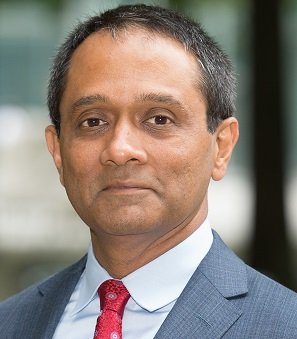Embracing a big data revolution in medicine
December 05, 2018 | Wednesday | Features | By Badhri Srinivasan
At its core, drug development is a data-driven enterprise.
Like many other industries, healthcare is on the precipice of massive transformation due to the influx of new, emerging technologies. Many, including myself, see this change as an incredible opportunity to improve our ability to deliver groundbreaking therapies to patients and do so at a faster rate. A study from BIO showed that less than 10% of treatments in development are successfully brought from the clinic to market. This would be unacceptable in any other industry – and is a critical part of the reason we need to embrace new technologies that can help us evolve our business model to become more agile and efficient as we seek to find better solutions for patients in need.
At its core, drug development is a data-driven enterprise – but current models for collecting and curating data do not provide many opportunities to tap into the true power data can provide.
Take clinical trials for instance. At any given point in time, large pharmaceutical companies like Novartis are running hundreds of clinical trials around the world. The primary goal of each trial is to collect data that will help us to better define and assess the ways in which our medicines could help improve people’s lives. However, the traditional clinical trials process can be time consuming and cumbersome - it can take one person a week to analyze reported study data. If we are able to apply technologies such as AI and machine learning, we could rapidly analyze an entire volume of clinical data in a matter of seconds, whilst also achieving deeper insights into drug discovery and development processes than ever before.
Over the past two years, we have been working to create a modern architecture and internal infrastructure to integrate our vast data resources into a unified platform that can store and manage all of our current, future, and historic data sets. This systematic and comprehensive effort forms the foundation upon which we are maximizing our goldmine of operational and medical data – one of the most valuable assets we have – to accelerate trials, potentially identify trends or patterns, and more seamlessly progress the innovative compounds in our pipeline from early clinical stages to market.
In addition, we are also looking at better ways to integrate predictive analytics into our everyday practices. We believe that AI and predictive analytics have the potential to suggest novel molecular entities with a high probability of success in the clinic. Applying advanced analytics techniques to our wealth of operational data also enables real-time, data-driven decision-making in both current and future trials, which will lead to overall systematic improvements.
While change of this scale can often be seen as disruptive, in this case, our transformation has created an incredible opportunity to take full advantage of the different capabilities and resources available to us around the world. Our team in India is a great example where the drug development team is working closely with academic institutes and industry partners to develop technology solutions that will automate certain data management processes, enabling quicker, more accurate and insightful interpretation of vital signs and lab data.
One of the most critical things we have learned in our own journey to enhance the ways we develop and study medicines is that integrating new systems and technologies is just one component of the critical change we need to realize. The other crucial piece is changing the mindsets of those in our industry – to embrace transformation and the collaboration necessary to make the changes needed to continue to be successful. The endeavor of developing medicines is a noble and critical mission – and we have the chance to go about that task in a new and potentially more efficient way. If we are able to embrace the changes needed – we have an extraordinary opportunity to improve the lives of patients around the world.
Badhri Srinivasan, Head of Global Development Operations, Novartis









